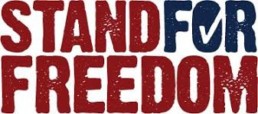Amid the maelstrom of the Civil Rights Movement, everyday heroes took a stand for the right of Black Americans to vote.
Jimmie Lee Jackson. Reverend George Lee. Viola Gregg Liuzzo. Herbert Lee. James Reeb. Brave souls who fought for what they knew was right. They paid for it with their lives. The right to vote is the lifeblood of our democracy— a fundamental right that the martyrs of the movement risked everything to secure. And yet, 50 years after Selma’s voting rights activism—50 years after Lyndon Johnson signed the Voting Rights Act of 1965—impediments to Black and Latino voters have gained a new foothold.
Elimination of same-day voting. Strict voter ID laws. Truncated voting by mail. Suppression of third-party registration campaigns. Inevitably, these restrictions emerged in states where voter participation among people of color, young voters and low-income populations were making a difference. Such ploys seemed especially startling in 2011—less than four years after the nation elected its first Black president with the largest turnout ever among Black, Latino and young voters. But as with prior advances, the backlash was immediate and ruthless. The tactics may have shifted from violence and intimidation to legislative maneuvering, but the goal was unchanged: block full equality for marginalized people.
The National Association for the Advancement of Colored People (NAACP) approached McKinney & Associates in 2011 to help stave off the fresh assault on voting rights with a national campaign, Stand for Freedom.
The campaign launch was an ambitious six-week sprint, a creative swirl of strategy, messaging and media. Our centerpiece was a rally at the United Nations marking International Human Rights Day, along with the release of a report documenting the vote-blocking tactics of opponents. We strategically drew from polling data that debunked the measures put forward by opponents and conveyed a clear message that Voting Rights = Human Rights.
The voter ID battle was the toughest to wage. Voting rights opponents, buttressed by the Koch Brothers, tied voting to commercial enterprises like cashing a check, driving a car and other activities that typically and reasonably require photo ID. McKinney linked the repressive measures together, emphasizing that the impetus for such obstacles was not to eradicate voter fraud, but to hamper full voter participation.
Our strategic approach positioned the NAACP as the nationwide constituency and action arm of the democracy movement. The robust media outreach campaign garnered prominent and favorable coverage in print, online and broadcast outlets, reaching a total audience in excess of 250,000,000. And we built on the NAACP’s commanding brand as an ardent defender of voting rights to publicize the UN rally, which drew 25,000.
The campaign was a testament to the need for sustained vigilance and activism to protect the rights of all Americans.
In November 2012, the DC Metro Chapter of the International Association of Business Communicators (IABC) awarded the campaign its Silver Inkwell prize.

